MercoPress. South Atlantic News Agency
Politics
-
Friday, February 12th 2010 - 04:29 UTC
Uruguayan president elect captivates audience of Argentine businesspeople
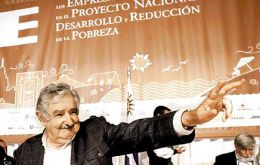
Uruguayan president elect Jose Mujica promised to the business elite of the River Plate economic stability, standing rules of the game, low taxes, incentives and reduced risks in exchange for productive investments in the country’s economy.
-
Friday, February 12th 2010 - 04:08 UTC
Brazilian police arrest Brasilia’s governor on bribery charges
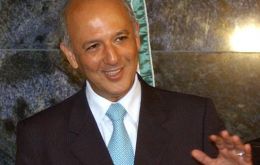
Brazilian police arrested on Thursday a key opposition party district governor on bribery charges, potentially hurting the right wing's chances in the general election this year.
-
Thursday, February 11th 2010 - 19:16 UTC
Barclays’, Argentina’s debt swap operator accused of oil interests in Falklands
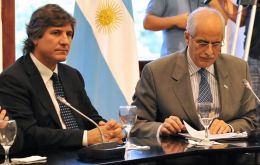
Two Argentine solicitors announced they will be pressing criminal charges against the Ministry of Economy for having contracted Britain’s Barclays’ bank for a major sovereign defaulted bonds swap and this financial institution is “a shareholder of Desire Petroleum, the oil company which is poised to begin exploration operations this month in Malvinas waters”.
-
Thursday, February 11th 2010 - 18:20 UTC
France and Germany committed to assist Greece with debt problems

European Union leaders meeting in Brussels agreed on Thursday to assist Greece with its debt problems, though EU President Herman Van Rompuy offered no details as to what that will entail.
-
Thursday, February 11th 2010 - 18:08 UTC
Argentina blocks vessel involved in Falklands operations

Argentina blocked Wednesday a ship from leaving a Techint Group plant after it traveled to the Falkland Islands without government permission, the Argentine Foreign Office said. The “Thor Leader” is docked in Techint’s Campana plant carrying a cargo of 7.099 tons seamless pipes, the government office said in a statement.
-
Thursday, February 11th 2010 - 03:34 UTC
EU summit to address how to save Greece from default
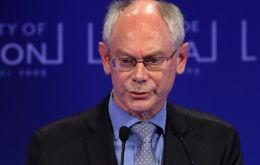
The European Union (EU) first full-time President Herman Van Rompuy will chair an informal summit on Thursday to draw an economic blueprint for the bloc for 2020. The meeting is also devoted to addressing some immediate challenges, such as record high unemployment and the possible-default crisis in Greece potentially extending to other members.
-
Thursday, February 11th 2010 - 03:25 UTC
Mrs. Kirchner and farmers clash over soaring meat prices

Argentine President Cristina Fernández de Kirchner admitted that “meat prices have risen dramatically” (30 to 40%) but immediately blamed the “farming sector” and its obsession “to be more profitable” as the main reason behind the price escalade.
-
Thursday, February 11th 2010 - 03:24 UTC
Argentine High Court reluctant to be involved in central bank reserves dispute
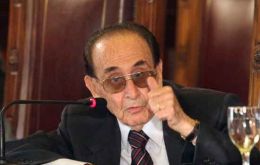
A member of the Argentine Supreme Court suggested that the high court may reject a government appeal that could open the way for the government of President Cristina Fernandez de Kirchner to pay debts with Central bank reserves.
-
Thursday, February 11th 2010 - 03:12 UTC
Long live the strong man for he faces three major challenges
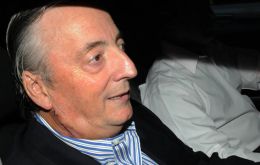
Former Argentine President Nestor Kirchner left the hospital three days after emergency surgery on an carotid artery that feeds blood to his brain, which was described by the medical staff as “serious and intervened on time”.
-
Thursday, February 11th 2010 - 03:00 UTC
The Commissioner and Foreign Office official tour South Georgia

Commissioner Alan Huckle and his wife Helen visited South Georgia in January. Travelling with them was Jane Rumble, Head of the Polar Regions Unit at the Foreign and Commonwealth Office, and GSGSSI Senior Executive Officer Martin Collins, reports the January edition of the S.G. Newsletter.
